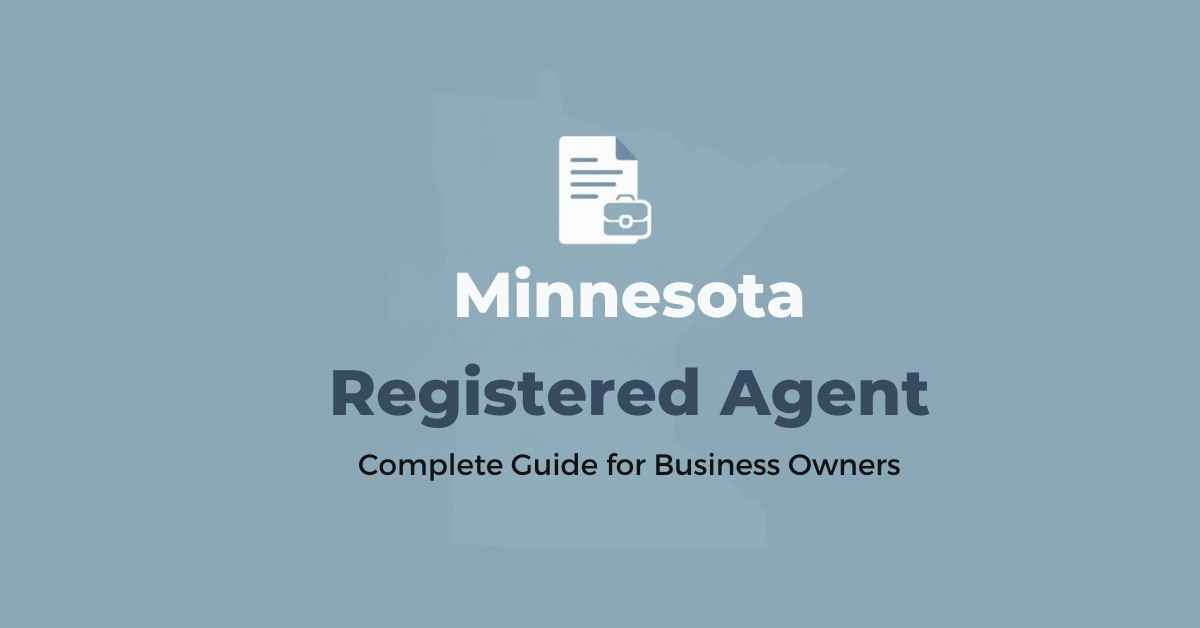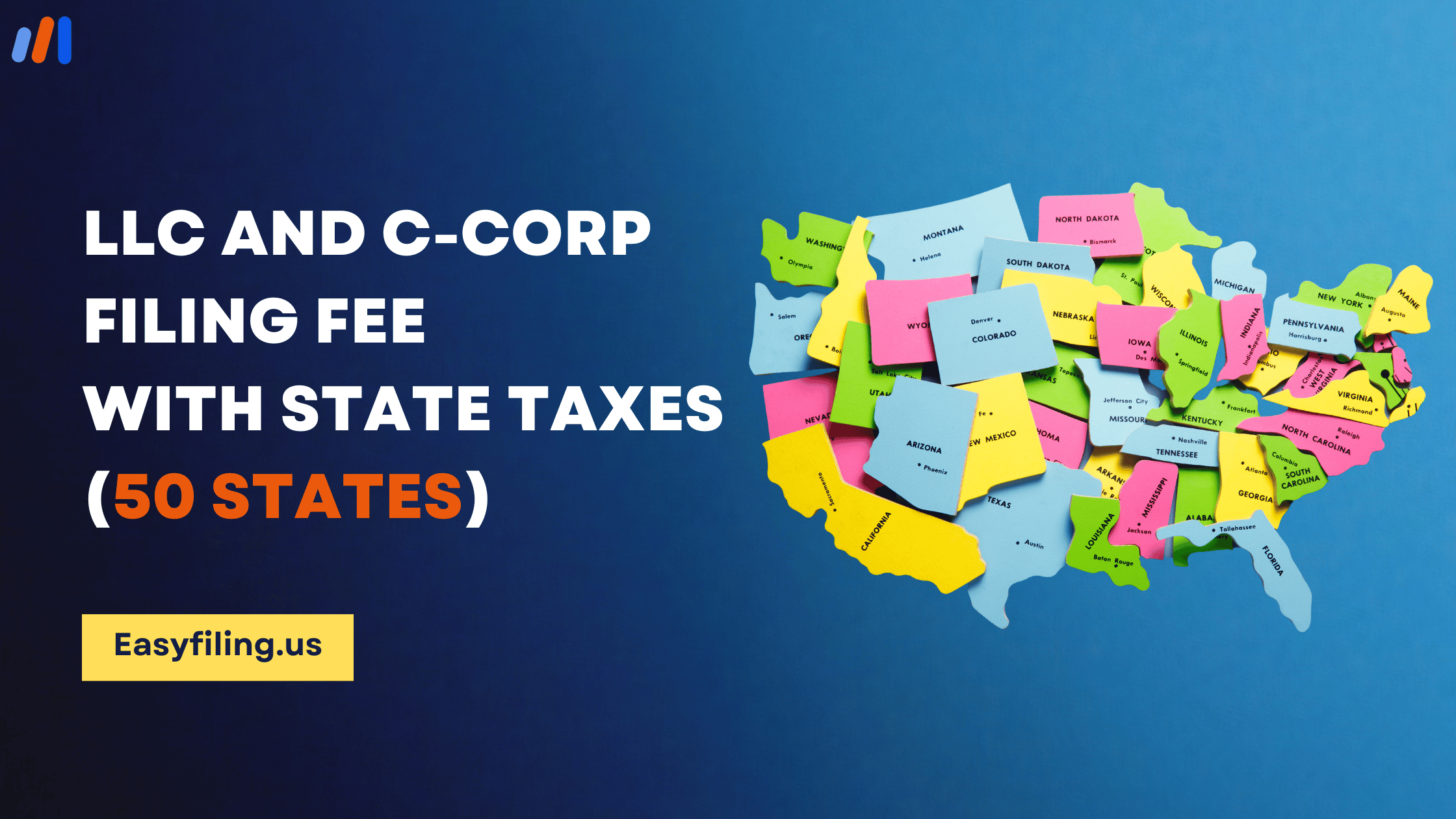Creating a Limited Liability Company or LLC in Vermont is one of the best ways to approach your business structure since it is simple, flexible, and keeps your liability in check.
In case you are a business owner with intentions of kick-starting a new venture or a small entrepreneur seeking to organize the operations of your company registering an LLC should be your best move, as it offers protection to your personal and private properties, gives your business a professional image.
Vermont is considered to be one state with a conducive business environment together with a simplified structure of laws and the formation of LLCs in the state is quite easy and efficient.
This article will illustrate all the procedures step by step so that in the end, you will know how to form a Vermont LLC correctly and effectively.
Why Form an LLC in Vermont?
Limited Liability Protection
This is one of the most common purposes why most members acquire LLC; over the years, it has shown to be the reason for attracting many business people.
Limited liability conveys that the joint assets of the individual members of the LLC (owners) are segregated from commercial liabilities and obligations, in most cases.
In instances where the LLC is faced with a lawsuit or accrued debts, the personal properties of members such as houses and savings are not individualized.
Flexible Management Structure
The optimum feature of LLCs in Vermont is that there is no restriction on the management structure.
The members themselves may run the business aka a member-managed enterprise or the members may opt and appoint other managers known as the manager-managed enterprise.
This way, a business is enabled to choose the management style that best suits their needs.
Pass-Through Taxation
Unless and until stated otherwise, it is assumed that LLCs are subject to pass-through taxation.
This means that federal income tax is payable at the individual level and not at the business level.
In this case, the profits and losses are reported to the members’ tax returns. This may eliminate the challenges associated with tax filing and may create tax benefits as the members are taxed once on income.
No State Corporate Tax for LLCs
As per the law, Vermont has no state-level corporate tax on LLCs. This is a deciding factor for business persons since it promotes higher retention of earnings in the business, thus supporting expansion and development.
Flexibility in Profit Distribution
In the case of LLCs registered in Vermont, there is no restriction on how profits will be shared among the members.
Corporations issue dividends in proportionate ownership to shares, however, an LLC may make distributions to members of any kind provided it is directed in the operating agreement.
This makes it easier to devise strategies around finances and give a personal touch.
Steps to Form an LLC in Vermont

Step 1: Choose a Name for Your LLC
The creation of an LLC begins with giving the company a distinctive name that meets all requirements. For an LLC in Vermont, the name:
- Shall not be similar or the same as any name of other businesses already in existence in the state of Vermont.
- Shall include the phrases “Limited Liability Company,” “Limited Company,” or abbreviations such as “LLC,” “L.L.C.,” “LC,” or “L.C.” as part of its name.
To see if a name you would like is available, you can look up the Vermont Secretary of State on the business database. It is reasonable to suggest that you come up with a couple of additional names in the event your first option is unavailable.
If you are not prepared to file your application right away but still wish to protect your name, you can do so in Vermont for 120 days by reserving the name and paying the appropriate fee.
Step 2: Designate a Registered Agent
The Registered agent is an important aspect of your LLC formation. He or she may be an authorized individual or business organization that is responsible for receiving such documents as court papers, government notices, and other essential communications for your LLCs.
The registered agent pleads:
- A real street address; a P.O. Box is not acceptable in Vermont.
- Ordinary working hours should be kept on hand.
You may either serve as your registered agent, select a member of the LLC for all acts, or enlist a registered agent service provider for convenience and anonymity. Legal and compliance documents are therefore often managed through competent services.
Step 3: Submit Articles of Organization
The formation of an LLC officially requires the submission of Articles of Organization with the Secretary of State of Vermont. This document includes:
- The LLC title.
- The registered agent’s name and address.
- Principal address.
- The management structure of the LLC (whether it is member-managed or manager-managed).
- Full name and address of the organizing members (those who form the LLC).
Interstate Articles of Organization can be filed either electronically or manually and the current filing charge is $125. Online filing usually leads to lesser processing time, which is a few business days as compared to a several-week waiting period for papers.
The Vermont Secretary of State website should always be able to provide up-to-date fees and processing duration.
Step 4: Draft an Operating Agreement
Even though nothing in the legal statutes requires an operating agreement for members of an LLC, this is a necessary document that defines the ownership, the management structure of the LLC, and how it operates. Provided with an adequate detailing, the elements that are often included in an operating agreement include:
- Duties of every member, and their roles.
- How voting occurs and how decisions are taken.
- How information flow takes place in the business and how profits are shared among members.
- How new members are added or existing members’ exit is managed.
- How to close down the LLC and all the procedures involved.
The operating agreement increases the distance between the owners and the business itself. This ensures that the limited status is observed and less conflict is likely to arise. Even for single-member LLCs, this document is of importance as it establishes procedures for managing the company.
Step 5: Get An Employer Identification Number (EIN)
The EIN is otherwise known as the Federal Tax Identification Number and is awarded by the IRS which gives it a specific identification to the LLC. To be able to manage:
- Pay any state and federal taxes.
- Set up a business account.
- Employ or recruit personnel.
Understanding a business EIN is simple and the process is free on the IRS web page. One can also apply for an EIN by mailing or faxing Form SS-4 but applying for an EIN online enables a person to access it immediately after application.
Step 6: File for Vermont State Taxes and Apply for Business Licenses
Your LLC may be required to file for Vermont sales and use tax registration depending on the activities of the business. If you sell goods or provide taxable services, you must register with the Vermont Department of Taxes. Furthermore, if your LLC employs workers, you will have to:
- Enroll in withholding compliance.
- Secure compulsory worker’s compensation coverage as stipulated by the laws of Vermont.
Other businesses may be subject to certain licenses or permits that may be issued at the state, county, or city level. It is important to identify your industry as well as go through any permit requirements that may be necessary.
Certain information concerning licensing can be obtained from the Vermont Department of Economic Development and local city or town offices.
Step 7: Set Up a Business Bank Account
Business bank accounts can assist in keeping your personal and business finances separate. This step is very important in:
- Ensuring the protection of the limited liability nature enjoyed by LLCs.
- Facilitating tax filing as well as bookkeeping.
- Making the audit process simple in case there is an audit by the IRS.
When you want to open a bank account, you should have the following documents available:
- Your EIN.
- Copy of the Articles of Organization.
- Possibly Your operating agreement.
- IDs of members or authorized signatories.
Step 8: Get Business Insurance
Business insurance is necessary as it shields your limited liability company from non-promising occurrences and liabilities. Depending on your industry, the following types of insurance might be necessary:
General Liability Insurance: This assists handle such claims as injuries to a person, destruction of property, or unfair competition.
Professional Liability Insurance: This is great for businesses that are purely on service as it protects them from lawsuits based on negligence or errors.
Workers’ Compensation Insurance: This general insurance is compulsory if your LLC employs staff as it caters to injuries related to employment.
Step 9: Submit Your Report Annually
To remain active and not be struck off from the register of companies, Vermont requires that you submit an annual report to say that your LLC is still in good standing.
This report brings up-to-date information on changes in the business, e.g. changes to the registered agent or the management structure of the LLC.
You must expect to pay a $35 fee every time you file for the report which is due every year in the month of formation of the LLC. The report if filed late can lead to fines and even administrative dissolution of the business hence it is important to file in time.
Other Important Tips
Compliance and Record Keeping: It is critical to keep properly detailed records of all LLC activities, meeting minutes, or the changes in the number and composition of its participants (members). This is an activity that enhances the use of exceptional features of a limited liability company, LLC.
Taxes and Accounting: It may also be necessary to employ the services of a tax professional to ensure that all legal tax obligations at the federal and state levels are observed. The advantages of proper bookkeeping are many including saving time and money for making mistakes in the season for tax returns.
Conclusion
The unlimited opportunities should make it clear why you need to establish an LLC in Vermont if you’re an entrepreneur or business owner in need of a business structure that is both secure as well as flexible in nature.
Among the many advantages of an LLC is the limited liability which severally guards personal property, management simplicity, and even the advantages of pass-through taxation.
Opting for such a structure enables entrepreneurs to develop and grow their businesses without worrying about their core interests since there is always a strong structure to protect them.
Be it the establishment of a new business or even a scenario of taking over an existing business; establishing an LLC in Vermont will guarantee you effortless navigation of all business ownership intricacies while offering the right tools for growth and expansion in the long term.
Book a free consultation for clear guidance on how to set up a Vermont Limited Liability Company and any other services that you may need.
Frequently Asked Questions (FAQs)
May a particular person create a Vermont-based LLC?
Yes. In Vermont, the law allows a single-member LLC allowing one person to create an LLC and enjoy limited liability and pass-through tax advantages.
How much time does it take to create an LLC in Vermont?
There are variations about when the Articles of Organization can be filed. If submitted electronically, it will usually take a few business days, whereas mail submissions may take weeks. There is a need to search the Vermont Secretary of State’s website to know the processing times that are currently valid.
What are the requirements of an LLC in Vermont continuingly?
For your LLC to remain active and in good standing status, the following is required:
- The annual report of the company must be filed with the Vermont Secretary of State during the anniversary month of the initial formation of your LLC.
- The annual report fee has to be paid, which in Vermont is $35.
- Be up to date regarding record retention and compliance with taxes at both state and federal levels.
Can I conduct business with my LLC under a different name?
If you would like to do business under a different title from that of your registered LLC, yes. To do this, however, it means you must apply for a “doing business as” (DBA) name with the state. This lets you adopt a trade name without losing the legal name of your LLC.
What are the specific tax obligations of an LLC in Vermont?
When it is not opted out the pass-through taxation applies to LLCs and the profits and losses are reported as part of the members’ tax return. Also, those LLCs that deal in selling products or services would need to remit sales tax as well as get state employer tax registration if they have workers.
File Your LLC Today
25$ off with a coupon
Lock in EasyFiling's transparent rates and get lifetime compliance support at no extra cost.
Get Started Now









